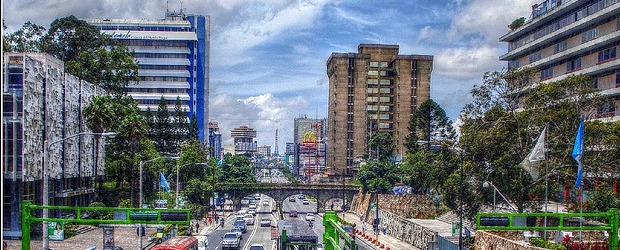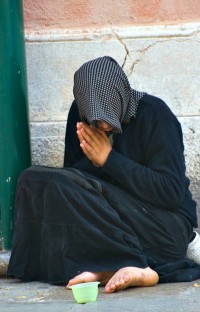You have no items in your cart. Want to get some nice things?
Go shopping
Jack London once jotted down, “A bone to the dog is not charity. Charity is the bone shared with the dog, when you are just as hungry as the dog”. For six months I had sunk into earth up to my chest, mixed concrete with flimsy shovels, been stomped brutally by a half-year rainy season, taken falls from makeshift scaffolding, lost fifty dollars in lunch time card games, all alongside a team builders and eager villagers. Eight new houses now stood, my hands a part of their foundations, and as I waited for my plane back to Britain in the Guatemala City airport I felt the satisfaction and aches of a man who knows he has done a job well. One twenty quetzales note sat in my pocket, kept as a souvenir, and my last coins went on a thick black coffee and melon that I finished off for breakfast while watching the flight board tick over.
My tattered backpack was soon on the check-in conveyor, my passport and ticket handed over, and the air hostess tapped away noisily on a keyboard. Handing them back over with a grimace she said something in Spanish so quick that no gringo could comprehend it. She then huffed and explained in perfect American-English that I had to go across to another booth, pay a security fee of twenty quetzals, return with a stamped slip of paper, and then pay the exit tax of thirty dollars.
She pushed my backpack off the conveyor and signalled to the next customer. Bad vibrations went around my head. I had visions of missing my flight, losing the money I had spent on the tickets and having to phone home, desperate with a cupped-hand voice. Or maybe this was some kind of sign, not an oversight on my part, but a message from somewhere that I had to stay. But I had commitments to make and I needed to catch that flight. I cracked open my wallet: twenty quetzals starred at me, safe for the security fee, and I fingered for another lonely note that wasn’t there.
A cleaner told me an ATM was a block away. So I ran. The flight board still said two hours to go. Like a gambler with his last chip, I rubbed my card between my palms and made a promise to a God that I didn’t believe in, but I thought it might help out of tradition. A balance of five dollars came up. I smashed the buttons. It came out. I stashed it in my wallet and stood a minute to think of what to do.
There wasn’t enough time to call for money to be sent over. I knew the highly taught woman on the desk wouldn’t except my excuses and would turn me away. I had been on the continent long enough to know that there’s some people who except a palmed note and there’s those that see it as the highest form of disrespect, a kind of gringoism that sees all Latin Americans as corrupt and debased; a fist in the face of progress and self-respect. At this point I no longer cared for progress and decency, and I regretted I wasn’t born in the 1950s when everyone seemed to be paid by a handshake or I wasn’t dealing with the Peruvian customs-officer again who charged me ten dollars for an safe entry into Ecuador, instead of a three hour wait and God-knows what else. Whilst it might be destabilising, a bribe certainly does get things running quicker and easier than the law.

There was only one thing for it: to beg. At first I ran around the airport with a cheap phone I had picked up. “Desea comprar este”, I said to anybody I could…from café to café, along queuing lines. The cleaning ladies thought this was a good laugh and wasted ten minutes of my time bargaining with me. I realised what they were doing when one pulled out a bundle of quetzal notes and fanned herself. She grinned and I cursed. It must have been a comical scene for the locals, a good bit of role-reversal to see a gringo with the fear in his face, hands jittering, never meeting eye contact out of embarrassment. After thirty minutes I had made ten dollars from a few suited Guatemalans who stuffed the notes in my hand and hurried away with loathing. In a café I spotted a three dollar tip left on a metal plate but the worker got there before me.
An hour left and the fear was growing. I took out my MP3 player and offered it for twenty dollars. It was worth a hundred. No takers. I noticed a few uniformed policemen talking with the cleaners and expected the worst. I had no notion of begging laws over here and I didn’t want to discover them. One came over with a smile and offered me five dollars for the machine. Pride is a fool and has the habit of appearing in situations that it has no right to be in…I said no and went back to the check-in desk.
The same air hostess was there. She was getting ready to move off and begin boarding the plane. “Por favor”…again, again…again. She wouldn’t have any of it and seemed to take a callous liking of my situation; the cleaners had merely seen it as a laugh. I had tried for an hour and had made ten dollars to add to my five. “Quinze…it’s only fifteen dollars!”. Silence.
Thirty minutes later I was at the front of the boarding queue. My head down and I couldn’t look at the man and the hostess as I boarded the plane. She tore his ticket and saw him on, then did mine and tutted. The man turned around to me and smiled as we made our way down the gangway and onto the plane; I couldn’t tell if it was a smirk of empathy or superiority. The fear was still on my face. It hadn’t been wiped off when he handed me two bills at the desk and asked the hostess to get a move on. She looked at me with a face that hadn’t had its share of small victories, and I knew she was disappointed that I had found the money. I had handed over my wad of notes and slumped my backpack down on the conveyor. The security checks were unfortunately quick and I arrived at the boarding gate with enough time to meet the stares of the passengers who I had begged off minutes before.
On the plane I snuck into a corner and stayed there, breathing slowly now, still avoiding the eyes of others. I felt like the diseased kid at school no-one ever talks to, but talks a lot about. I was in my corner and I knew others were thankful for that, but it didn’t stop them looking and whispering. When I was building and we finished a house, we would have a little celebration to welcome the family and to hand over the keys. While I never enjoyed the opportunity it gave to voyeurs to come from far and snap their cameras, I felt a little proud that the families seemed happy and satisfied with their new house and our work. Now I wasn’t so sure whether this happiness was genuine or feigned; whether they felt like the charity-case in the corner avoiding the stares, ashamed that their hands were clean of cement but dirtied with the stain that cupped-hands make. Certainly, they had a house and I had a flight home, so pragmatism says all’s good; but I didn’t enjoy the fear and vibrations along the way, and I didn’t enjoy crying poverty to either the callous or the sympathetic.
About David Hutt
David Hutt has been writing travel articles, fiction and poetry for the past few years. In 2012 he moved to Nicaragua to work as a freelance journalist for several Latin American newspapers, and had a travel column in Vagabundo Magazine. He is currently hitchhiking around Europe, and soon he will be moving to Phnom Pehn, Cambodia.

